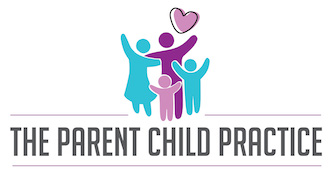As a parent, it can be hard to hear that praising your child may not be the best thing for them in the long run. You might be asking yourself: what’s wrong with telling your child you’re proud of them, or even saying “good job”?
Chances are, you’ve seen the smile on your child’s face when you give them words of praise. We all feel good when someone is praising us for something we’ve done.
However, instead of primarily focusing on praising your child, you should also consider encouraging them.
What’s the difference?
The Problem Praise Poses
Yes, praise feels good, especially to a child. But there are some problems with constant praise that could actually be hindering your little one, rather than helping them.
Some of the biggest issues with praise include:
Taking away from improvement
Promoting perfection
Focusing on the outcome, not the experience
Not thinking through decision-making processes, only worrying about the decision itself
Balancing on a “win” or “loss” mentality which can be shattered by disappointment
Unfortunately, lots of praise also conditions children to depend on feedback. Whether that feedback is positive or negative can then determine whether the child actually enjoyed something. So instead of saying “good job,” you could say something like, “did you have fun?” or “what was your favorite part?”
Your child wants your approval. They want to do a good job and they want you to be proud of them. But you’re not always going to praise them. Maybe you just forgot to tell them “good job” one time, and while it may not seem like a big deal to you, it can be crushing to them if they have become dependent on your praise.
It can even make them feel as though you don’t approve of what they’re doing. It’s a judgmental way of showing support, and it can actually have a negative impact on your child’s self-esteem and independence.
The Excitement of Encouragement
So, if you shouldn’t excessively praise your child for a good job or give them the idea that they need to meet your approval with every task, what’s the alternative?
Encouragement.
It’s easy to think that encouragement and praise are the same, but in reality, they’re quite different. Encouragement can be given at any time, not just when the results are in. It focuses on the effort being given, rather than the outcome. Because of that, it can help to boost your child’s self-esteem and even improve your relationship with them.
Whether your child hits a home run at their t-ball game or strikes out every time shouldn’t matter. The experience itself is what matters. So instead of saying “you played so well!” after that home run, talk to them after the game about whether they’ve learned anything new or if they enjoyed their new position.
How Encouragement Builds Stronger Character
Encouragement means an absence of judgment. We all want to be praised, but none of us want to be judged. Because encouraging your kids takes judgment away, it can help them to become stronger, more well-adjusted children. They’ll have a better understanding of how to make choices and how to see progress in what they’re doing.
Encouragement also lets your children measure their own worth, rather than allowing others to do it for them. They’ll quickly learn about the things that are important to them and develop a stronger sense of self-identity. As a result, they’re less likely to be swayed by the opinions of others.
So, if you frequently praise your child, I would “encourage” you to switch up the way you’re communicating. Encouragement will help to strengthen your relationship, rather than tear it down.
I have provided a few phrases below that are examples of giving encouragement:
"You seem to like that"
"How do you feel about it"
"What do you think?"
"You can do it"
"You're getting better at..."
"You really worked hard on that"
“Look at your improvement!”
“Do you feel proud?”
“Thank you for your help!”
“That reflects a lot of hard work.”
“That’s a tough one but you will work on figuring it out.”
“I trust your judgement.”
“I just love being with you.”
“I can tell you spent a lot of time thinking through this or working on this.”
“That is coming along because of your willingness to stick with it.”
—
If you’re not sure how to turn from praise to encouragement, feel free to contact me for more information about working on parenting together.




